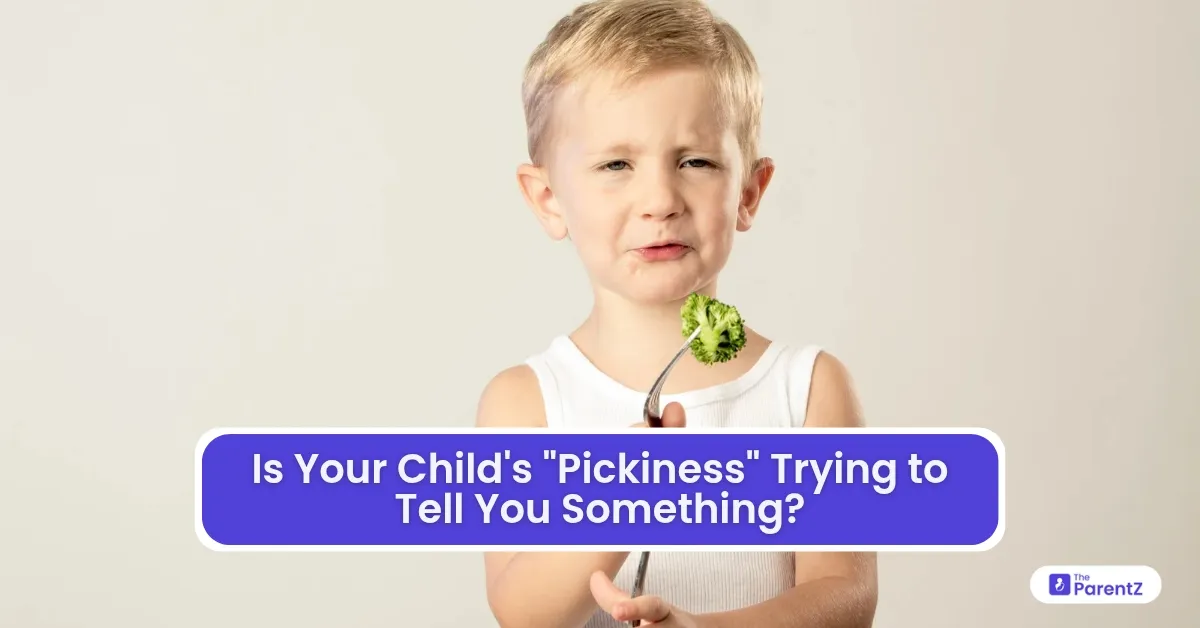You stare at the plate of peas, carrots, and lovingly grilled chicken your child just pushed away with that oh-so-familiar scowl. Another mealtime, another standoff. You sigh. “Why are they so picky?”
But what if — just maybe — their pickiness isn’t about being difficult? What if it’s your child’s way of telling you something deeper? Something about their body, their emotions, or even their world?
Read below this article to explore the mystery behind picky eating — and how tuning in can actually make all the difference.
Picky Eating Is Often a Form of Communication
Here’s something that might surprise you — picky eating can be a message. Your child might not have the words to say that the texture makes them gag or that smell makes their tummy flip. Instead, they refuse, fuss, or cry. Not to give you a hard time, but to ask for help in the only way they know how.
Think about it: for adults, we avoid foods we don’t like or that upset our stomachs. Kids are doing the same thing — just without the grown-up vocabulary or coping skills.
Sometimes, the pickiness is about sensory sensitivity. Other times, it's about control in a world where everything feels out of their hands. And occasionally? It's just about being overwhelmed.
Their Senses Might Be More Sensitive Than You Realize
If your child gags at mashed potatoes or runs away from a plate of scrambled eggs, it might be more than drama. Many kids are sensitive to texture, temperature, color, or smell. It’s called sensory processing sensitivity, and it’s more common than you think — about 1 in 6 children has sensory challenges that affect how they eat, according to research from the STAR Institute for Sensory Processing.
So, when your child cries at the sight of green beans, it may not be rebellion. It might be that their nervous system just doesn’t know how to process it calmly. And honestly, if broccoli felt like wet fuzz in your mouth, you’d probably spit it out too.
Anxiety, Change, or Control
Ever notice your child gets pickier when there’s been a big change — a new school, a new sibling, a tough week? Kids often express stress through food refusal. Eating involves all five senses, plus emotional regulation — so if they’re overwhelmed, food becomes a battleground.
Sometimes, it’s about control. Kids have so little power in their day — you pick their clothes, their bedtime, their school.
And that’s not manipulation — it’s self-expression.
Be Curious, Not Controlling
Instead of jumping to frustration (which we all do — no shame), try something different next time. Ask gently about what don’t you like about it? Is it the way it feels or the way it smells? Would you try it if it was crispy instead of mushy?
These questions open up communication. And when kids feel safe being honest, they’re more likely to explore, not resist.
Exposure Beats Force — Always
Research shows that it can take 10 to 15 exposures for a child to accept a new food. That means seeing it, smelling it, maybe poking at it — not necessarily eating it. You wouldn’t expect someone to love opera the first time they hear it, right?
The same goes for spinach.
Instead of saying, ‘You have to try it,’ try, ‘Let’s smell it together.’ Let them help in the kitchen. Let them feel empowered. Bit by bit, the fear or resistance often fades.
If your child eats fewer than 20 foods, avoids entire food groups, or shows distress around eating, it might be worth checking in with a pediatrician or occupational therapist.
Conclusion
Next time your child turns their nose up at dinner, pause and think, what are they really trying to say? Is it discomfort? Fear? A need for control? Or just a bad day?
In the end, picky eating isn’t a problem to fix. It’s a language to learn.








Be the first one to comment on this story.